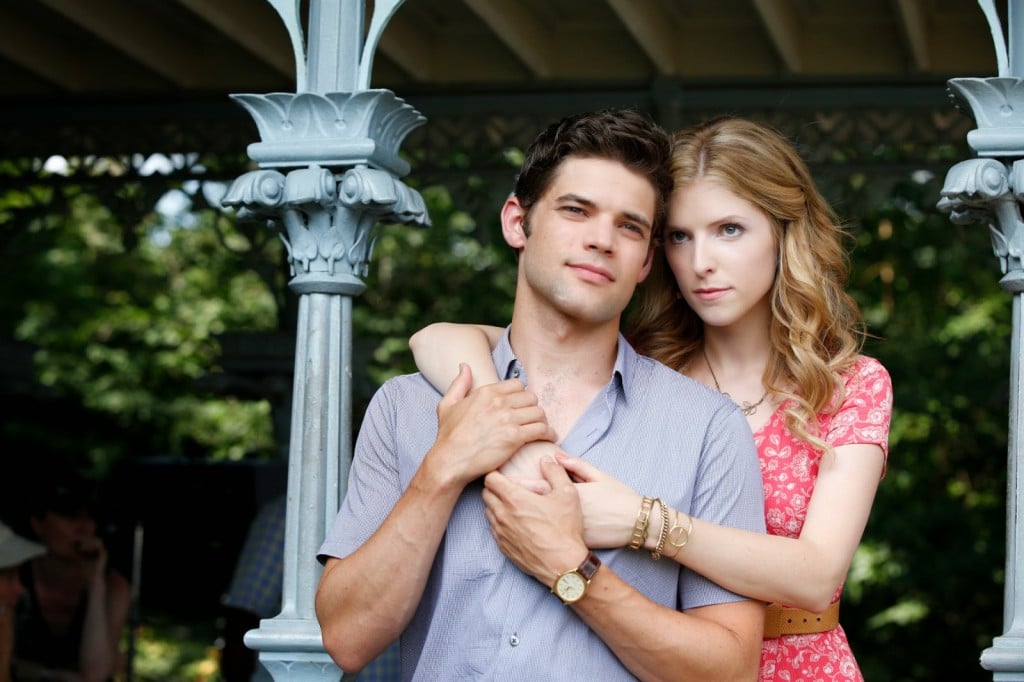When I hosted a party to watch The Last 5 Years, one of my guests tried to play diagnose-the-heresy with the two leads and claimed that they were both Pelagians, seeing happiness/success/virtue as simply a result of their own efforts. I disagreed for several reasons, the most important being that I think Pelagians think that a good life is harder to achieve than either Jamie or Cathy does, and that Pelagians see their own weakness as the primary obstacle to their salvation, while Jamie and Cathy are focused on dealing with external obstacles.
I get the impression that Jamie and Cathy feel, to borrow from another musical, that “If you give me a job, Then the rest of the crap will get solved.” Both partners think they’re basically all right in themselves, and that dealing with their external pressures will finally give them the chance, as Jamie says “to be happy / at some point down the line / Don’t we get to relax?”
As a result, they avoid acknowledging or asking for help with troubles that are rooted in themselves. As a result, the relationship comes off as unbalanced. We don’t see Jamie support Cathy in any way besides singing at her and trying to cajole her to believe in herself, while Cathy logs hours standing at Jamie’s readings, going to his publisher’s parties, etc. Jamie, meanwhile, struggles to make it to Cathy’s summerstock shows in Ohio.
Except, as one of my friends pointed out, we see Cathy offer logistical support to Jamie, sitting through boring parties, but we don’t see her offer emotional support. Even if Jamie’s attempts to encourage Cathy are marred by beating around the bush in “Story of Schmuel” and anger in “If I Didn’t Believe In You” he notices that she’s unhappy and tries to care for her — there is no parallel song where Cathy does the same for Jamie.
As we kept debating in the living room, several people argued that Jamie just doesn’t need emotional support from Cathy. His artistic career is wildly successful, while hers never really gets started. He has, by his own admission, a slightly swollen ego, while Cathy is plagued by self-doubt and self-consciousness. In this reading of the show, Jamie is doing fine; he’s too stable to need much from Cathy himself, and he fails as a lover and a husband by not recognizing and responding to Cathy’s need (perhaps blinded by his own self-sufficiency and good fortune).
But I don’t buy it, because we get one song (“A Miracle Would Happen”) where Jamie is confronting a significant problem:
https://www.youtube.com/watch?v=iuFjT5oeEBwThe miracle that Jamie asking for is to stop being tempted to look at or flirt with or (by the end of the show) sleep with other women. He wants to behave differently, but he treats his temptation as a problem challenge to solve on his own; he doesn’t ask Cathy for help here the way he asks her to stand and smile at his readings.
Jamie’s impulses to stray are, in his mind, unspeakable and unforgivable. He can’t mention any of this to his wife, because support within a relationship is, in his understanding, only about things outside a relationship. He can ask Cathy’s help with a professional matter and he can try to help her as long as he frames her problems as solely personal, about her alone.
This is why I regretted a little the way the movie chose to stage “Nobody Needs to Know” the song in which Jamie acts on his temptation. In the stage version, it’s generally understood that Jamie has a single infidelity — that the song takes place as a single reflection in bed, before the girl he’s slept with has woken up. The movie chose to stage it as a time lapse, as a parade of women come in and out of Jamie’s bed.
I like the single error staging better, because it suggests that, if Jamie chooses to end the relationship immediately after betraying it, that he doesn’t see any possible path to forgiveness. He can ask his wife to help him with other people (by dressing up and schmoozing) but he doesn’t know how to ask her to help him. Once he gives away that he is the cause of some of his problems, he doesn’t imagine that Cathy would forgive him or choose him, if she really knew him.
Cathy and Jamie are both capable of allying with their partner, in league against external threats and obstacles, but they lack any expectation that sometimes love is an alliance against our own weakness and foibles, where the beloved sees us and, rather than loving us exactly as we are, loves what we could be and our own efforts to grow into something better.
If you’d like to get an early review copy of Arriving at Amen, my forthcoming book on prayer, you can enter the drawing through a link in my book updates email tomorrow.













